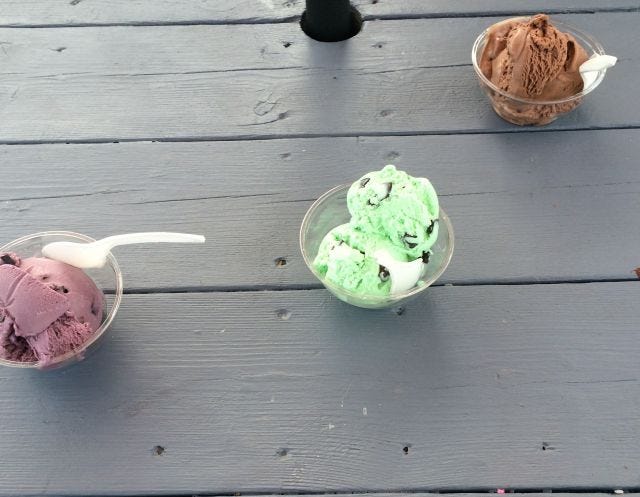On Sugar Fixes (and Fixer Upper)

First, a quick thank you for subscribing to this newsletter! (Now go tell all your friends to do the same.)
This week, I'm thinking a lot about sugar. It's almost Halloween, which means all of the (mostly) moms in the online parenting groups I follow have been despairing about how to manage the coming candy deluge. There's a lot of pressure to make elaborately healthy treats from scratch, or at least buy organic lollipops in order to tempt kids away from the Mini Snickers. Meanwhile, the American Heart Association recently updated their guidelines to say that children under the age of 2 should consume no added sugar, while kids between the ages of 2 and 18 should consume no more than six teaspoons per day.
So I'm gonna say it: We're demonizing sugar these days, just as we once demonized fat, and later, all carbohydrates. Yes, there are studies showing how increased sugar intake correlates with an increased risk for various health problems like heart disease and diabetes. No, I can't offer you a list of counter studies documenting the health benefits of added sugar. There might not be any, although we've been wrong before. But I will question (as others have) the logic of expecting an 18-year-old high school football player to eat the same amount of added sugar per day as my 28-pound toddler. I'm pretty sure that their nutritional needs are vastly different in just about every respect? Wouldn't it at least make more sense to stagger the guidelines based on age and maybe some other factors?
I'm also researching picky eaters right now, and blacklisting sugar works against the parents of these kids in so many ways. Young children are naturally drawn to sweet flavors and skeptical of things like vegetables. Adding sweetness (whether it's a side of maple syrup or ranch dressing, or a dusting of cinnamon sugar) can go a long way towards making unfamiliar foods more palatable. Sugary packaged foods have the added benefit of being predictable in their appearance, texture and taste. That's important when kids have a lot of fear around food. Sugar also offers calories, which, bottom line, are what kids need to grow. Parents of underweight kids don't need our judgment when they break out the Hostess cupcakes because it's the one reliable source of calories in their day. (Parents of overweight kids don't need our judgment either — but I'll write more about that another week.)
Policing sugar, in particular, becomes problematic because it so quickly becomes about socioeconomics. You need the time and training to cook from scratch. Or you need to be able to afford fancier groceries, since packaged foods marketed with health claims almost always cost more. And you for sure can't be one of the nearly 12 million American kids who rely on school breakfast programs to be sure they eat in the morning; this Civil Eats writer found the average free breakfast in her school district offered nearly 13 teaspoons of sugar in one meal.
What I'm really questioning here is why the AHA is yet again using a deficit model to promote healthier eating habits. When public health guidelines focus on what we can't eat, it reinforces our widespread cultural belief that there are good foods and bad foods, and if you eat the bad foods, you're failing at life. That's counterproductive, if not harmful — and we do have the research to prove it. What if, instead, we focused on how to offer more of the foods we want kids to be eating — even if, for now, they need a little sugarcoating?
Next week at my house, we'll be following the evidence-based advice of Ellyn Satter on managing Halloween treats. But a friend (who is also a very smart food writer) asked me recently if I'd have a different view on Violet's sugar consumption if we hadn't had to work so hard to help her learn to eat again. The answer is absolutely, yes. Letting go of my own fear of "bad food" was — and continues to be — one of the hardest parts of that process. I'd love to hear how you handle sugar, both on your kids' plates, and your own.
PS. Oh hey, want to read something that has nothing to do with food? Check out my new Curbed.com piece: Is Fixer Upper a Stealth Feminist Fantasy?


